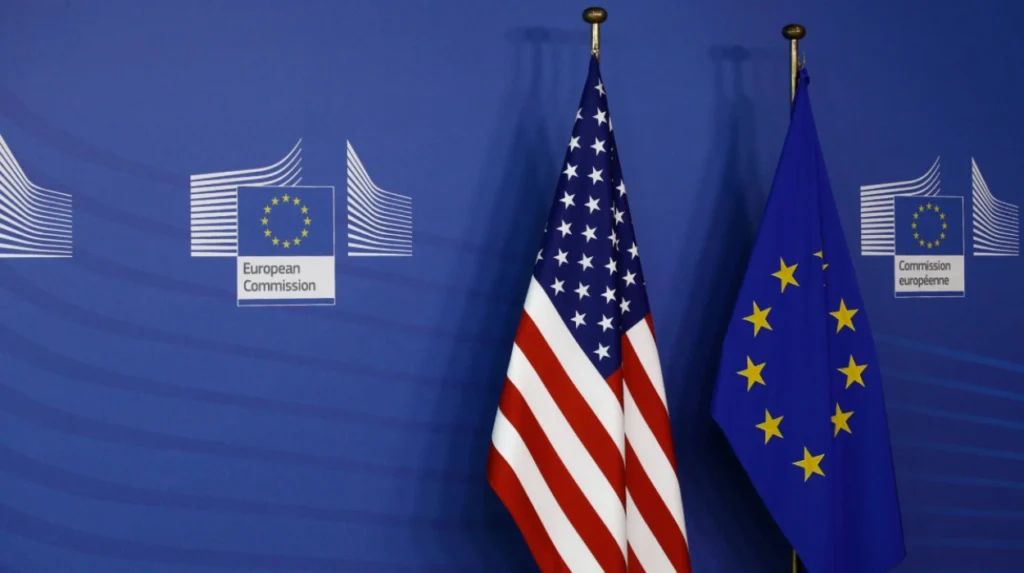The United States has intensified its opposition to European Union digital surveillance measures, sparking a new phase of tension in transatlantic relations. This confrontation arises amid increasing efforts by the EU to assert digital sovereignty through regulations such as the Digital Services Act (DSA) and robust data privacy laws, which the US views as restrictive and discriminatory toward American technology companies. The escalation not only exposes deepening divides over data governance but also highlights competing visions of sovereignty, privacy, and economic control between the two global powers.
Historical and Political Background of the Dispute
The discord traces back years to fundamental disagreements over data privacy, surveillance, and digital market regulations. The EU has consistently sought to protect its citizens’ personal data against foreign surveillance, especially that linked to US intelligence activities. Landmark rulings by the Court of Justice of the European Union (CJEU) invalidated previous data transfer frameworks like Safe Harbor and Privacy Shield, citing inadequate protections from US government surveillance.
In 2023, the EU and US agreed on a new Data Privacy Framework (DPF), designed to address these concerns. However, US political developments soon jeopardized the DPF’s stability. In early 2025, President Donald Trump dismissed key Democratic members from the Privacy and Civil Liberties Oversight Board (PCLOB), the US body tasked with monitoring intelligence compliance under the DPF. This move raised European fears over the board’s independence, potentially undermining the entire agreement’s legitimacy and leaving thousands of companies in legal limbo regarding transatlantic data transfers.
The US Accusations Against EU Digital Regulations
From the US perspective, European regulations like the Digital Services Act and broader digital sovereignty efforts represent protectionist barriers that unfairly target American companies. The Trump administration labeled these laws as “discriminatory” and as threats to US economic and national security interests.
President Trump issued a memorandum in February 2025 authorizing tariffs on countries imposing digital service taxes and regulatory fees seen as obstructive to American tech firms’ global competitiveness. This memorandum explicitly singled out several EU countries, including France, Italy, and Spain, accusing them of “overseas extortion” and undermining “American sovereignty”. The tariffs are part of a broader push by the US to wield economic leverage against EU digital policy, signaling that digital cooperation between the two powers has been replaced by escalating economic rivalry.
US lawmakers have echoed these concerns, with prominent voices like US House Judiciary Chair Jim Jordan criticizing EU digital rules such as the Digital Markets Act (DMA) as “weaponizing” regulation to harm American companies. High-profile tech executives, including Meta’s Mark Zuckerberg and Elon Musk of X, have publicly supported the US government’s hardline stance, suggesting that EU content moderation rules effectively amount to censorship of American platforms.
European Efforts to Defend Digital Sovereignty
In response, the EU has positioned its digital regulation agenda as a necessary step in building “digital sovereignty,” giving Europeans more control over their data and online environment. The DSA, which came into force in 2024, aims to compel tech giants to tackle illegal content such as hate speech, terrorist material, and child exploitation online while protecting users’ fundamental rights. European officials argue that these rules create a safer digital space, addressing not only commercial issues but also societal and democratic concerns.
Several EU member states are taking aggressive measures to decrease dependence on US technology infrastructure. Germany’s new administration emphasizes open data standards and locally based IT infrastructure, and smaller governments like Schleswig-Holstein in Germany have mandated public administration to operate exclusively on open-source software. Moreover, European countries are seeking alternatives to US-dominated cloud and satellite services, such as France-backed satellite internet networks, to reduce vulnerabilities linked to US government access to data.
Legal and Geopolitical Implications
The political clash over digital surveillance and data privacy has significant legal ramifications. The ongoing challenge by French MP Philippe Latombe in the EU courts questions the validity of the DPF given recent US actions that threaten oversight mechanisms. Legal experts foresee potential repeated invalidations of EU-US personal data transfer frameworks, which could severely disrupt business operations and transatlantic digital commerce.
Beyond the courts, the dispute reflects a broader geopolitical competition where data sovereignty and digital regulation have become new arenas of strategic rivalry. The US insists on a narrative of defending “sovereignty” and free markets, while the EU stresses the importance of regulating technology in line with democratic values and protecting citizens’ fundamental rights.
This conflict coincides with a backdrop of rising US tariffs targeting the digital sector and suspicion around EU ambitions for digital autonomy. Notably, US officials have hinted at repercussions for NATO relations if European digital policies are perceived to curtail “free speech” on American platforms, intensifying the political stakes.
Impact on Global Tech Governance and Businesses
The rivalry poses challenges not only for the two blocs but also for the global digital economy. Uncertainty around data transfer frameworks affects multinational corporations relying on smooth cross-border flows of information, while tariffs and regulatory fragmentation compel companies to navigate complex and often conflicting rulesets. Both European and American businesses face a fraught environment with increased risks and compliance costs.
In essence, the US-EU confrontation over digital surveillance and market regulation has replaced earlier hopes for transatlantic cooperation with a strategic competition defined by mutual suspicion and hardening policies. Whether diplomatic channels can de-escalate tensions remains uncertain, and businesses and consumers globally are caught in the evolving crossfire.







